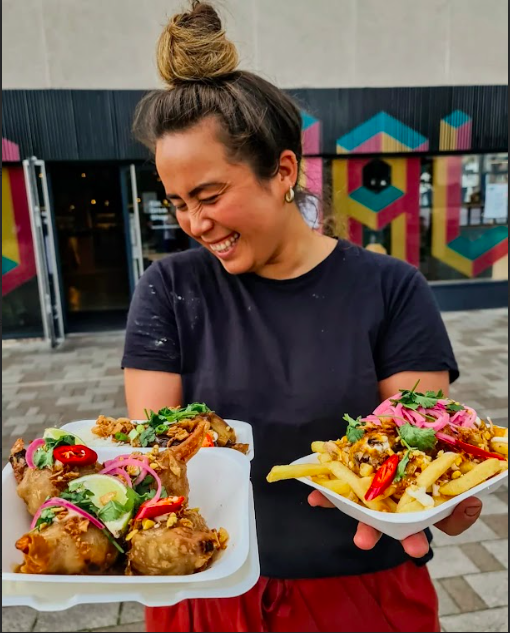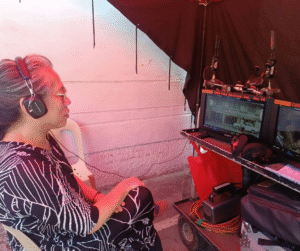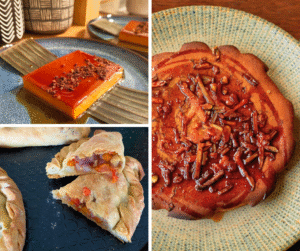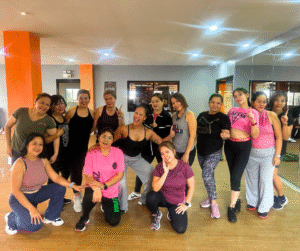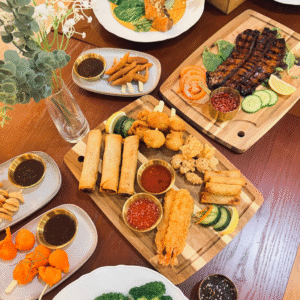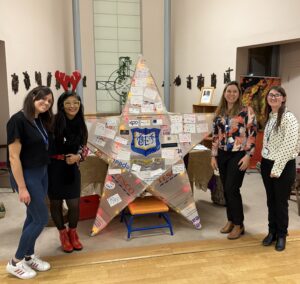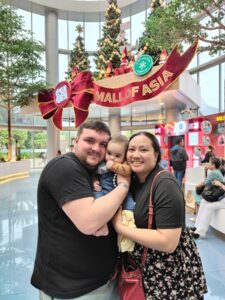Payal Tyagi
Filipinos in Britain have been cited last year for being the most entrepreneurial in the UK. A report by London-based financial company ETX Capital conducted in 2022 suggests that the largest group (around 2.65%) of businesses in the UK belongs to Filipinos. While Tinig UK could not verify the accuracy of this report, social media posts and publicly available data show the growing number of Filipino-owned businesses across the UK.
To support Filipino businesses, Tinig UK is organising Voice and Visibility for Filipino-British Women in Business: A Networking Event. Our goal is to raise the profile of all Filipino businesses starting with women-led enterprises..
As part of our efforts, we are launching this series to highlight the stories of Filipino business owners. And there’s no better place to start than with Filipino food! While there has been increasing coverage of Filipino food in the mainstream UK media, much remains to be done to popularise it. Filipino cuisine boasts richness in flavour and culture which deserves to be acknowledged and celebrated by a broader audience.
Through this series, we wish to celebrate Filipino entrepreneurs, learn from the challenges they faced and inspire readers aspiring to begin their own businesses.
We start with Zosima Fullwell, co-founder and co-owner of Yes Lah Cafe and owner of Cooking with Mama Z. She says, she is “bringing Manila to Manchester,” where she lives and runs her businesses.
What is the story behind your brand name?
Coming up with a name for my business was tricky! Mama Z became my nickname because I loved cooking, hosting, and looking after my friends through my food. Starting a food business with this nickname created a personal connection with the customers. Though I prefer to showcase Filipino food’s flavours, I enjoy cooking food from all cuisines. I don’t want to restrict myself to a pigeonhole, as I may change the direction of my business later down the line.
When did your journey begin?
The idea behind Mama Z came when I was enrolled in a university far from home, and I missed my home-cooked food. However, my business started in 2017 while I was doing private supper clubs for my friends, trying my hands at new recipes and becoming confident in the process.
Self-taught, I worked in the hospitality sector as a chef and in events to better understand how the food business operates. However, I always knew that I wanted to begin my catering business. In early 2018, I quit my full-time kitchen job, officially launched Mama Z and decided to bring Manila to Manchester through street food pop-ups, events and supper clubs.
What inspired you to start your business?
My inspiration for my business has come from my heritage and upbringing. Growing up in Saudi Arabia and being from a mixed background meant I had multiple cultural influences on me. I always loved food and was very lucky to taste some amazing recipes from my international friends growing up, alongside relishing the food I had at home.
My mother is from the Philippines and cooked me all my favourites growing up, inspiring me to raise the flag for Filipino food through Mama Z. There was also a gap in the market in Manchester, and I wanted to address that by showcasing the food I love.
Who supported you in establishing your business?
I had the best support from my friends and family, who helped me when they could during events, but financially, I needed more money to start.
Thankfully, there are some fantastic resources to help young businesses and start-ups, starting with the Prince’s Trust and Local Business Growth hubs to apply for grants and funding.
To begin with, I wrote a business plan, did market research, and worked on the side for friends and events to save up whilst slowly buying the equipment I needed along the way.
How do you ensure the quality and authenticity of Filipino food in your business?
The quality is overseen as I am the only person cooking the food in Mama Z and my new and permanent venture, Yes Lah, in West Didsbury, Manchester.
The Filipino food I prepare is inspired by my family kitchen, Lola, Tita’s Tindahan, and places I explored on my travels. It’s a melting pot of my food memories, the people I have met and the places I stayed.
I am not too fond of the word authenticity and never associate my food or style of cooking with it, but I want to treat my customers with food that is authentic to me, my heritage and my family taste-wise.
I am in the UK cooking Filipino food using British ingredients so it won’t be “authentic.”
I’m also half Filipino and English, lived in Saudi Arabia, and now live in the UK, so the food I grew up eating was different, influencing my cooking skills. Even my mum’s recipes are distinguished because she also had to use what was around her to cook Filipino food in Saudi.
However, I always want to evoke Filipino flavours in my recipes while giving them my touch, especially when making vegetarian dishes. I have always strived to create excellent meat-free Filipino dishes for my customers to make Filipino cuisine accessible to all.
What was your starting capital?
I would say that my self-funded capital was probably only £500, and then later on down the line, I could apply for a loan with The Prince’s Trust after doing their start-up course and being successful with their program. I also got some local grants, which I was fortunate to get through Manchester Youth Market, that helped me get equipment and other stuff.
What permits or licences did you have to get and pay for?
Licences you would need would be your public liability insurance, PAT testing on your equipment, general permits and paperwork that needed to be in order when starting a food business.
What challenges did you face along the way, and how did you overcome them?
There were many challenges, and I still face them after being here for seven years. There are financial challenges, whether in the beginning when you start everything from scratch or later. The most significant responsibilities are paying rent each month and ensuring staff and suppliers get paid on time. On top of that, the rising costs of things have been challenging, but you keep going, and that’s what you can do!
I’ve also faced personal issues during my Mama Z journey, including imposter syndrome in this line of work and also having people say that what I do isn’t “Filipino” enough. I think this is why I have such an issue with the word “authenticity” as I know many people face this problem in the industry regarding flying flags for Filipino cuisines in their style.
Food is subjective, and you can’t please everyone! It’s taken time, but I have learned to move on from the comments and take it with a pinch of salt. Every day is a learning curve full of challenges, and it only makes you better equipped to deal with things in business! I have grown a lot during this process and am only getting better as I do.
What advice would you give our aspiring food entrepreneurs to understand what they need to do?
Just do it! Life is too short. It’s hard work, but the rewards are great if cooking is your cup of tea.
Also, always explore what your local community is doing, perform your research work and find out the resources that can help you.
You may be surprised to know that someone is ready to fund your business and give invaluable business advice when starting up!
I recommend applying for The Prince’s Trust if anyone is unsure and wants that little push or help with a new business idea.
How would you like our website visitors to contact you?
Please check out my new venture, Yes Lah, to see what I’m up to. Also, follow me on socials @cookingwithmamaz or @yeslahmcr on Instagram.
About the author

Payal Tyagi is an experienced content strategist currently volunteering with Tinig UK as an editorial assistant. She is working on her dream project, “Travel to Muse,” a travel website that inspires, guides and entertains people who have a travel bug and even those who haven’t begun their journey yet.

